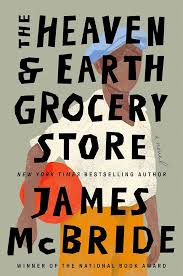Chapter 14: Differing Weights and Measures
byChapter 14: Differing Weights and Measures begins at the edge of Pigs Alley, where Fatty, seated on a pile of scrap wood outside his jook joint, quietly surveys the night while wrestling with a growing concern. Inside, the laughter and lively tunes can’t mask the unease he feels about Nate Timblin’s presence, a man whose silence speaks volumes. Nate’s quiet drinking masks a history few know in full—but Fatty remembers enough to sense the weight of danger simmering in that silence, especially with a jug of potent moonshine at his side.
Rusty’s casual conversation with Fatty reveals more than concern—it underscores the fear that surrounds Nate, a man whose legend from Graterford Prison isn’t forgotten. The name Nate Love, whispered among inmates, carried both reverence and dread. The older inmates didn’t fear what he’d done as much as what they believed lived inside him—a dormant force of fury that, once awakened, knew no master and left nothing untouched.
Fatty’s chain of misfortunes—fired from his job, injured in a fight, pulled into family drama—culminates in the arrival of that very same moonshine at his jook. He hadn’t foreseen the dominoes: one busted lip, a detour to Philly, and suddenly a cartload of North Carolina Blood of Christ ends up on the Hill. With it came ghosts and dangers, not from the drink, but from who might drink it—and what it might awaken.
The flashback to Gene’s disaster in Philadelphia provides not only context for how the moonshine ended up in Fatty’s possession but also a snapshot of how quickly things spiral when well-meaning intentions meet unforeseen chaos. Gene’s accident with the horse-drawn pumper, though comic in detail, carries the tragic undertone of how one choice—however harmless—can explode into a storm of consequences. Fatty’s stint at the dry cleaner, prompted by familial obligation and sealed by a bribe of liquor, becomes a pivotal moment that now threatens to erupt back home.
What Fatty is truly battling that night isn’t just a problem customer or the risk of a police raid—it’s the memory of what Nate Love once was. In prison, Fatty had witnessed raw violence; Dirt, the inmate who took a man’s eye out with a fork, revered Nate not with fear but awe. That reverence wasn’t because of past crimes but the presence of something deeper—something that men like Dirt could sense but never tame.
In the jook, the moment Nate’s eyes meet Fatty’s, it is no longer about a man drinking too much—it becomes a moment of survival. Fatty feels the weight of history pressing down on the room, not from Nate’s gaze, but from what’s hiding behind it. It isn’t rage that Fatty fears—it’s the stillness before it.
Rusty’s innocence provides a sliver of relief. The simplicity of his concern for Dodo, Nate’s nephew, and his quiet protest against the injustice done by Doc Roberts manages to cool the air, if only slightly. It’s this kind of human decency, untainted by politics or past sins, that allows Nate’s shoulders to lower, his grip on the glass to loosen. In Rusty’s eyes, Nate glimpses a purity he may have lost—or perhaps long buried.
When Fatty finally breaks his silence to offer help, even naming Pennhurst, it’s not just an offer of support—it’s an attempt to reach what’s left of the man inside Nate. The subtle change in Nate’s posture, his faint mumble, and the way his rage seems to recede suggest that, for now, the storm has passed. But Fatty knows too well that such tempests are never truly gone—they merely wait.
The lesson in this chapter is buried in the title: differing weights and measures are not just about justice and fairness—they’re about how we measure the burdens others carry, especially the silent ones. Nate’s calm hides a world no one wants to confront, and Fatty’s own regrets have taught him what happens when you misjudge what lives beneath the surface. The night may have ended quietly, but the tension of what could have been lingers, as sharp and heavy as the shine still left in Nate’s glass.


